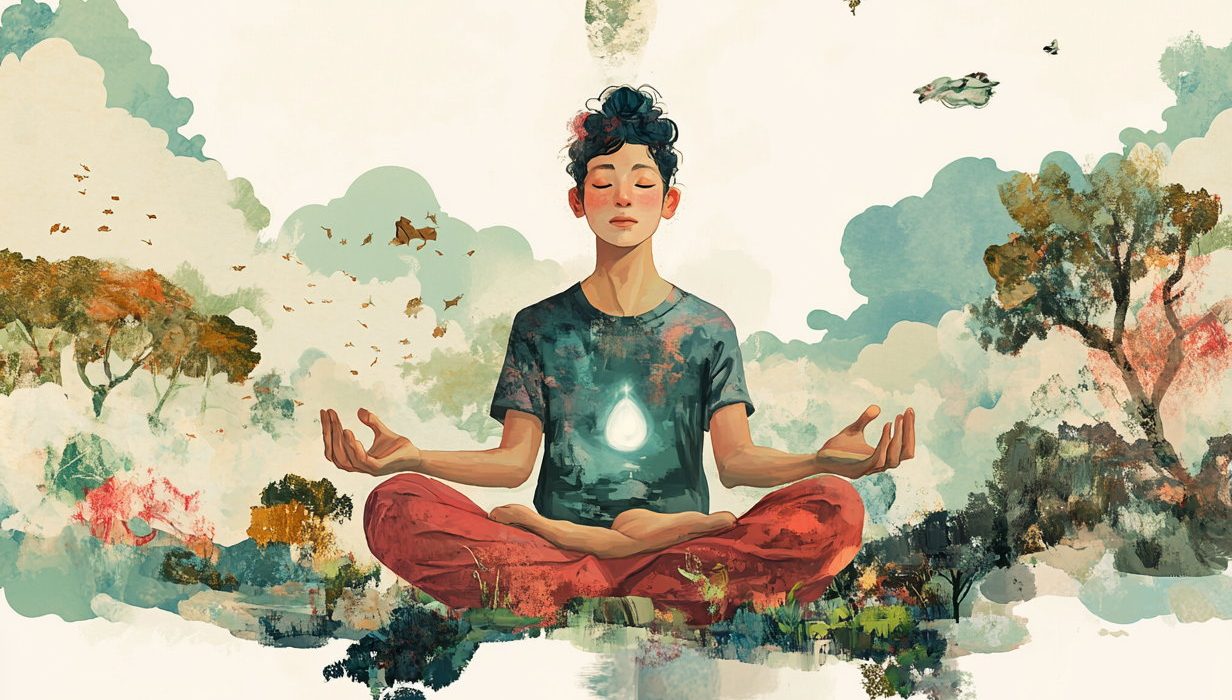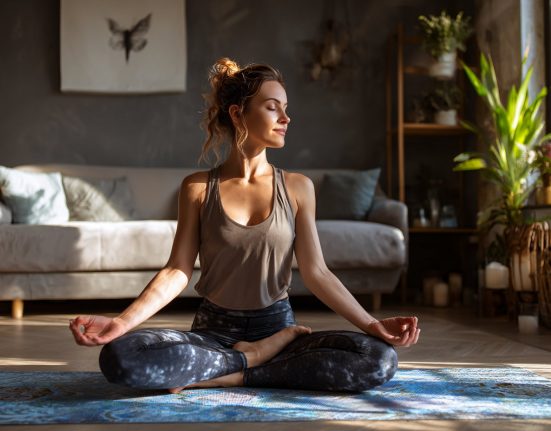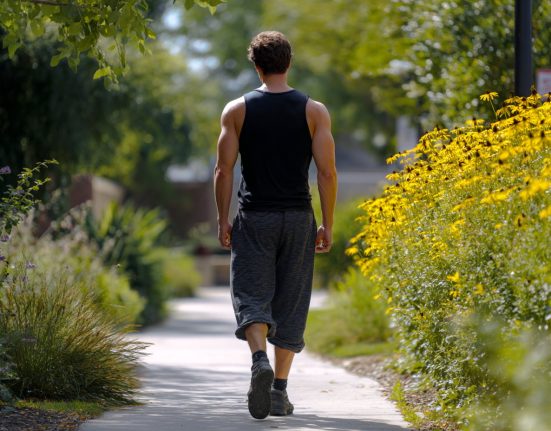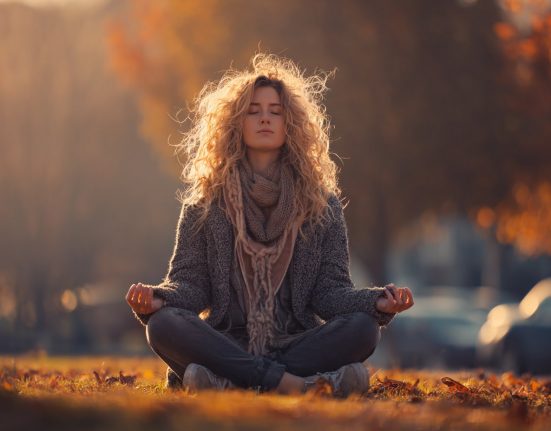These are the seven common mistakes people make when trying to start a meditation practice.
The benefits of meditation have been well documented. It decreases anxiety, helps you focus at work, and rewires your brain to help reduce stress. So according to the U.S. Department of Health and Human Services, why do only 8% of Americans do it?
“People don’t start meditation because they think it’s boring and demands patience,” says John Chisenhall, director and owner of DeRose Method Greenwich Village, a high-performance training firm that includes meditation. “Nothing could be further than the truth. Meditation can help you become more driven and focused.”
If you’ve tried meditation and wondered why it didn’t work, you might be making mistakes that are derailing your practice. Here are seven common missteps when it comes to benefitting from meditation.
Judging Yourself
It’s common to judge yourself when you first start to meditate, but this is a mistake, says Nina Smiley, director of mindfulness programming at Mohonk Mountain House, a spa resort in New Paltz, New York. “They question whether they are meditating correctly or effectively, which sets up a barrier that only discourages you from continuing to meditate in the future,” she says.
Instead of focusing on yourself, focus on being present and mindful. “Use your doubts as an opportunity to grow in your meditation practice by actively clearing your thoughts and returning your attention to your breathing,” says Smiley. “The most important aspect of meditation is all about being mindful and judgment-free, and each self-questioning thought can be used as a learning opportunity.”
It can help to know there is no right or wrong when it comes to meditation, adds Alexis Conason, a New York City-based clinical psychologist who specializes in mindfulness. “People often think that a good meditation session is one where you can keep all of your attention on the object of your practice, such as your breath, but the nature of the mind is to be active, and noticing the active mind is itself part of meditation practice,” she says.
Meditating When You’re Tired
Meditating when you’re in a sleepy passive state, such as at the beginning or end of the day, might make your meditation more difficult, says Chisenhall. “The body biology expects that when you close your eyes, it’s time to sleep,” he says.
Instead, make the most of the practice by doing it when you’re fully awake or after you exercise. “It’s best to coordinate with breathing, strength, and flexibility exercises,” says Chisenhall. “When you sit down to meditate, you will have a cumulative effect.”
Not Practicing Consistently
Meditation is designed to be a daily practice, and consistency is key to produce desirable results, says meditation coach Ben Turshen. “It’s like brushing your teeth,” he says. “If you brush your teeth once every three weeks, it’s not going to do much. Same with meditation.”
Become non-negotiable with your practice and commit to make it happen every day, Turshen suggests. “Non-negotiable doesn’t mean perfect, optimal, or ideal,” he says. “Many techniques come with a number of preferences for their practice. Meditation is not an all-or-nothing proposition. It’s better to sacrifice a few preferences than not to meditate at all.”
Always Meditating By Yourself
When you’re first starting with meditation, going alone is fine, but to go deeper into the practice, people should reach out to a group or mentor, says Gustavo Oliveira, CEO of DeRose TriBeCa. “Sometimes people think they are truly meditating, but if they are not truly focused, it’s the opposite of meditating,” he says. “You need to become very aware of the moment and work on what you’re doing. This can be tricky if you’re doing it by yourself.”
“Find a meditation viewpoint you connect with, and you can go deeper,” adds Chisenhall.
Doing It To Escape
Thinking that meditation is about disconnecting is a common mistake, but it’s actually the opposite. “Meditation is a state of awareness and lucidity,” says Chisenhall. “It’s a way to be able to better integrate with yourself, society, and your family, and gain new insight. When you’re in a conversation, for example, you won’t be thinking about something in the past or the future. If you’re not fully engaged, you lose a lot of information.”
Meditation helps you better connect to the moments that matter the most, adds Oliveira. “Some of those moments can be at work,” he says.
Thinking It’s Easy
People think that meditation should be easy; all you have to do is sit there, says Beth Brombosz, yoga teacher and founder of Sublimely Fit. “It actually is a lot harder than it looks, especially if you’re used to letting your mind run wild all day,” she says.
Don’t underestimate its difficulty, and be prepared to handle distractions. “If you sit down to meditate but start thinking about your grocery list or a conversation with your boss, you need to be gentle with yourself and simply guide yourself back to the meditation practice,” says Brombosz.
Long-time meditators will tell you that the mind will still have its chatter and activity, adds clinical psychologist Sarah Gray, an instructor at Harvard Medical School. “But [with practice] it gets easier to avoid being hooked into the chatter, and easier and faster to bring the mind back to the focus of the meditation when it happens,” she says.
Expecting A Spiritual Experience
People often interpret meditation as being spiritual and religious, but the origin was actually in a naturalistic society in ancient India, says Chisenhall. “An archeological discovery shows small images of people meditating,” he says. “There were no statues, castles, altars, or any spiritual religious deities. These meditators would probably have been closer to modern-day scientists trying to understand the world they lived in.”
People often talk about enlightenment when talking about meditation, but it’s really simple and straightforward, he adds. “It’s an uncomplicated process to unclutter the mind,” he says. “Meditation isn’t going to solve all of life’s problems, but it makes you more aware. You increase your ability to filter things that are not important. And you identify the things that are important to get better results, and insight on how to best take action.”








